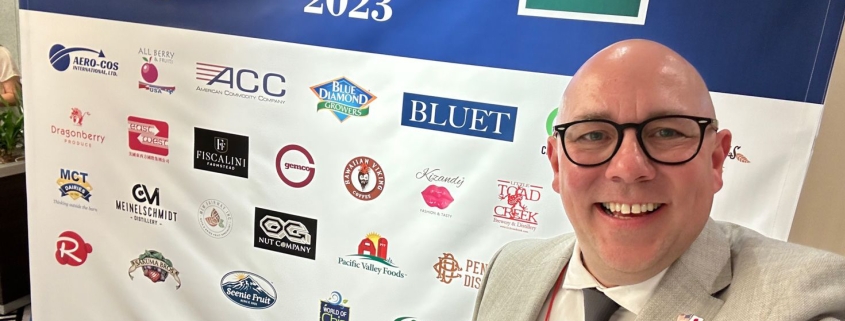SSGA seeks to make U.S. IP ‘big in Japan’
The tour through the Aeon Style supermarket in Tokyo showed the Americans several ways U.S. agriculture impacts Japan.
The travelers were part of a U.S. Department of Agriculture trade mission, and they got to see many of their exports or foods that use their exports on display, while shoppers also walked around intending to purchase some of those products.
The showcase included an impressive display of soy foods important to Japan such as natto and tofu, products that often feature identity preserved soybeans from the United States as prime ingredients.
“You might not realize the cultural importance of these foods until you see so many brands and varieties together in the cooler with shoppers poring over them,” said SSGA Manager for Strategic Programs Shane Frederick, who took part in the trade mission June 4-9 in Tokyo and Osaka. “Knowing that some of those products likely had ingredients sourced from SSGA members really underscored the impact our U.S. suppliers have on the industry.”
Indeed, the United States is the No. 1 supplier of food and agricultural products to Japan, a country that must import 60% of its calories. In 2022, Japan – a country with a population of more than 125 million people – imported $14.6 billion worth of food and ag from the U.S.
“This shows that there is a continuously growing demand for U.S. products in Japan, providing U.S. exporters with a tremendous opportunity to expand their exporting,” said Alexis M. Taylor, USDA Under Secretary for Trade and Foreign Agricultural Affairs.
Taylor led the delegation, which included representatives of several commodity organizations, 11 state departments of ag and 40 agribusinesses who, she said, had the opportunity “to showcase the strength of U.S. food and agriculture products. Japanese consumers are especially interested in high-quality, health-oriented products, and I am confident that U.S. businesses can meet and exceed these expectations.”
Besides the Aeon and other tours, Frederick participated in business-to-business meetings in Tokyo and Osaka, matching with a tofu manufacturer, as well as importers with customers in the food manufacturing and school lunch industries. He also met with in-country marketing professionals and USDA Foreign Agriculture Service (FAS) officials.
“It was an opportunity to meet people and, hopefully, start some working relationships,” Frederick said. “In some cases, we’ve begun setting up future discussions.”
Frederick’s No. 1 goal was to promote the U.S. Identity Preserved assurance plan and mark, which was launched in December 2021. Fourteen U.S. companies have been qualified for the program and are using the mark. Frederick talked about those companies and other SSGA members who supply high-quality, specialty grains and soybeans. As well, he was able to share the story of farmers who carefully grow identity preserved field crops for food ingredients and other purposes.
“The mark seemed to resonate with the representatives I met with, but there is more work to be done to keep it growing and get U.S. Identity Preserved well-recognized throughout Japan and around the world,” Frederick said.
Frederick also met with USDA international services officials in Japan representing the Animal and Plant Health Inspection Service (APHIS) and brief them on the High Quality Specialty Grain (HQSG) export certification program, which APHIS announced in April and SSGA administers.
The U.S. Identity Preserved assurance plan and mark were developed, in part, through a USDA FAS Agricultural Trade Promotion grant. SSGA’s participation in the trade mission is part of the organization’s goal of promoting the U.S. Identity Preserved assurance plan and brand program, which is also by the Michigan Soybean Committee, Minnesota Soybean Research & Promotion Council and Wisconsin Soybean Marketing Board.
SSGA will be considering other opportunities to promote U.S. Identity Preserved abroad, including future USDA trade missions.







Leave a Reply
Want to join the discussion?Feel free to contribute!